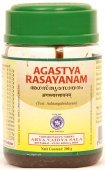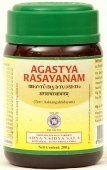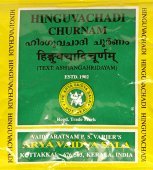Cati, Cāṭi, Cāti: 9 definitions
Introduction:
Cati means something in Buddhism, Pali, the history of ancient India, Marathi, biology, Tamil. If you want to know the exact meaning, history, etymology or English translation of this term then check out the descriptions on this page. Add your comment or reference to a book if you want to contribute to this summary article.
India history and geography
Source: Cologne Digital Sanskrit Dictionaries: Indian Epigraphical GlossaryCa-ṭī.—abbreviation of an expression probably meaning ‘a mound suitable for planting fruit trees’. See Ep. Ind., Vol. XXX, p. 56. Cf. ṭī. Note: ca-ṭī is defined in the “Indian epigraphical glossary” as it can be found on ancient inscriptions commonly written in Sanskrit, Prakrit or Dravidian languages.

The history of India traces the identification of countries, villages, towns and other regions of India, as well as mythology, zoology, royal dynasties, rulers, tribes, local festivities and traditions and regional languages. Ancient India enjoyed religious freedom and encourages the path of Dharma, a concept common to Buddhism, Hinduism, and Jainism.
Biology (plants and animals)
Source: Wisdom Library: Local Names of Plants and DrugsCati [சாதி] in the Tamil language is the name of a plant identified with Tinospora cordifolia from the Menispermaceae (Moonseed) family. For the possible medicinal usage of cati, you can check this page for potential sources and references, although be aware that any some or none of the side-effects may not be mentioned here, wether they be harmful or beneficial to health.
Source: Google Books: CRC World Dictionary (Regional names)1) Cati in Ethiopia is the name of a plant defined with Catha edulis in various botanical sources. This page contains potential references in Ayurveda, modern medicine, and other folk traditions or local practices It has the synonym Methyscophyllum glaucum Eckl. & Zeyh. (among others).
2) Cati in India is also identified with Justicia adhatoda It has the synonym Justicia adhatoda Mart. ex Nees (etc.).
Example references for further research on medicinal uses or toxicity (see latin names for full list):
· Bulletin of the Botanical Society of Bengal (1978)
· Planta Medica (1990)
· Species Plantarum (1753)
· Berichte der Schweizerischen Botanischen Gesellschaft (1976)
· CIS Chromosome Information Service (1976)
· The Gardeners Dictionary (1754)
If you are looking for specific details regarding Cati, for example side effects, extract dosage, diet and recipes, pregnancy safety, health benefits, chemical composition, have a look at these references.

This sections includes definitions from the five kingdoms of living things: Animals, Plants, Fungi, Protists and Monera. It will include both the official binomial nomenclature (scientific names usually in Latin) as well as regional spellings and variants.
Languages of India and abroad
Pali-English dictionary
Source: BuddhaSasana: Concise Pali-English Dictionarycāṭi : (f.) a jar; a pot.
Source: Sutta: The Pali Text Society's Pali-English DictionaryCāṭi, (f.) (cp. Hindī cāṭā) 1. a jar, vessel, pot J. I, 199; 302 (pānīya°); III, 277 (madhu° honey jar); DhA. I, 394 (tela° oil tank); VvA. 76 (sālibhatta° holding a meal of rice). ‹-› 2. a measure of capacity J. II, 404; IV, 343.—3. a large vessel of the tank type used for living in Vin. I, 153.

Pali is the language of the Tipiṭaka, which is the sacred canon of Theravāda Buddhism and contains much of the Buddha’s speech. Closeley related to Sanskrit, both languages are used interchangeably between religions.
Marathi-English dictionary
Source: DDSA: The Molesworth Marathi and English Dictionarycaṭī (चटी).—& caṭīpaṭī Commonly caṭṭī & caṭṭīpaṭṭī.
--- OR ---
cāṭī (चाटी) [or ट्या, ṭyā].—m A caste or an individual of it. They are clothiers.
--- OR ---
cātī (चाती).—f A flat and circular piece (of copper, silver, gold) as prepared to be stamped and converted into coin; a circular plate (of lead &c.) used as a weight; a little and thick cake (of dough) as prepared to be rolled out; a cake or pat of some other similar things. 2 The whirler of a spinning wheel: also the iron spike infixed: also such a circular plate used separately for drawing or twisting threads: also any pin or spindle or bobbin for winding.
Source: DDSA: The Aryabhusan school dictionary, Marathi-Englishcātī (चाती).—f A flat and circular piece. The whirler of a spinning wheel.
Marathi is an Indo-European language having over 70 million native speakers people in (predominantly) Maharashtra India. Marathi, like many other Indo-Aryan languages, evolved from early forms of Prakrit, which itself is a subset of Sanskrit, one of the most ancient languages of the world.
Kannada-English dictionary
Source: Alar: Kannada-English corpusCaṭi (ಚಟಿ):—[noun] a particular way of wielding one’s sword, in a sword-fight.
--- OR ---
Caṭi (ಚಟಿ):—[noun] = ಚಟ್ಟಿ [catti]1.
--- OR ---
Cāṭi (ಚಾಟಿ):—
1) [noun] an instrument for striking or flogging, with or without a stiff or flexible rod with a lash attached to one end; a whip.
2) [noun] a thin, twisted cord, used by children to spin a top, a cone-shaped toy, on its pointed end.
3) [noun] ಚಾಟಿಯಿಲ್ಲದೆ ಬುಗುರಿ ಆಡಿಸು [catiyillade buguri adisu] cāṭiyillade buguriāḍisu (fig.) to achieve one’s aim without having means, but using another’s.
--- OR ---
Cāṭi (ಚಾಟಿ):—
1) [noun] any thing or person who is equal to another.
2) [noun] the condition or quality of being equal.
3) [noun] a comparing or being compared; estimation of similarities and differences; comparison.
4) [noun] the act or practice of exchanging goods and services (without receipt or payment of money); barter.
5) [noun] ಚಾಟಿ ಹಾಕು [cati haku] cāṭi hāku to exchange one thing for another; to trade by exchanging goods without using money.
--- OR ---
Cāṭi (ಚಾಟಿ):—[noun] the saffron-cloth used by mendicants, religious or saintly persons.
Kannada is a Dravidian language (as opposed to the Indo-European language family) mainly spoken in the southwestern region of India.
Tamil dictionary
Source: DDSA: University of Madras: Tamil LexiconCati (சதி) [catittal] 11 transitive verb < sad. To destroy, kill; அழித்தல். மாயனை . . . சதிப்பதே கருமம் [azhithal. mayanai . . . sathippathe karumam] (மகாபாரதம் கிருட். [magaparatham kirud.] 178).
--- OR ---
Cati (சதி) [catittal] 11 transitive verb probably from chad. [Malayalam: Travancore usage cati.] To deceive; வஞ்சித்தல். சூதசங்கிதைு கொண்டு சதிப்பதே கருமமென்றான் [vanchithal. suthu kondu sathippathe karumamenran] (மகாபாரதம் சூதசங்கிதைு. [magaparatham suthu.] 24).
--- OR ---
Cati (சதி) noun < சதி²-. [sathi²-.] [Malayalam: cati.] Treachery, perfidy, wiles; வஞ்சனை. (சூடாமணிநிகண்டு) [vanchanai. (sudamaninigandu)]
--- OR ---
Cati (சதி) noun cf. சத்தி⁵. [sathi⁵.] Cooked rice; சோறு. (பிங்கலகண்டு) [soru. (pingalagandu)]
--- OR ---
Cati (சதி) noun probably from sadhi. Fire-producing mechanism; தீ உண்டாக்குங் கருவி. சதிகொண்ட சாக்கி யெரியின் வடிவாம் [thi undakkung karuvi. sathigonda sakki yeriyin vadivam] (திருமந். [thiruman.] 1653).
--- OR ---
Cati (சதி) noun cf. சடிதி¹. [sadithi¹.] Haste, speed, quickness; சீக்கிரம். சதியாய் வா. [sikkiram. sathiyay va.] Vulgar usage
--- OR ---
Cati (சதி) noun cf. yati. Agreement of time in music and dancing; தாளவொத்து. நன்மாதர் சதிபட மாநட மாடி [thalavothu. nanmathar sathipada manada madi] (தேவாரம் [thevaram] 118, 3).
--- OR ---
Cati (சதி) noun < satī.
1. Good, virtuous or faithful wife; கற்புடையாட்டி. (பிங்கலகண்டு) [karpudaiyatti. (pingalagandu)]
2. The fourth nakṣatra; உரோகிணி. (பிங்கலகண்டு) [urogini. (pingalagandu)]
3. Pārvatī; பார்வதி. (பிங்கலகண்டு) [parvathi. (pingalagandu)]
4. Suttee; self-immolation of a widow along with her deceased husband; இறந்த கணவனோடு மனைவி உடன்கட்டையேறுகை. [irantha kanavanodu manaivi udankattaiyerugai.]
--- OR ---
Cati (சதி) noun Circle, periphery; வட்டம். (பிங்கலகண்டு) [vattam. (pingalagandu)]
--- OR ---
Cati (சதி) noun See சரி⁸. [sari⁸.] Local usage
--- OR ---
Cāṭi (சாடி) [cāṭittal] 11 verb cf. śaṭh. [Telugu: jāḍiñcu, K. cāḍicu, Travancore usage cāḍi.] intransitive To slander; கோள்சொல்லுதல். [kolsolluthal.] (W.) — transitive
1. To chide, rebuke; கண்டித்தல். [kandithal.] Local usage
2. To crush; நொறுக்கு தல். [norukku thal.] (W.)
--- OR ---
Cāṭi (சாடி) noun < சாடி¹-. [sadi¹-.] cf. śaṭh. [Telugu: tcāḍi, K. cāḍi.]
1. Malicious report, slander; கோள் மொழி. (பிங்கலகண்டு) [kol mozhi. (pingalagandu)]
2. Powder; பஸ்மம். (யாழ்ப்பாணத்து மானிப்பாயகராதி) [pasmam. (yazhppanathu manippayagarathi)]
--- OR ---
Cāṭi (சாடி) [cāṭittal] 11 intransitive verb perh.சாடு¹-. [sadu¹-.] To bend to and fro, rock from side to side; to totter; இருபக்கமும் அசைதல். [irupakkamum asaithal.] (J.)
--- OR ---
Cāṭi (சாடி) noun cf. Marathi jhārī. [Telugu: K. Travancore usage jāḍī, M. cāḍi.]
1. Jar; பாண்டவகை. சாடிமட் டயின்று [pandavagai. sadimad dayinru] (சீவகசிந்தாமணி [sivagasindamani] 1614).
2. Aquarius of the zodiac; கும்பராசி. (திவா.) [kumbarasi. (thiva.)]
3. A measure of capacity; ஓர் அளவை. [or alavai.] (தொல். எழுத். [thol. ezhuth.] 170, உரை. [urai.])
4. cf. சாடு¹-. [sadu¹-.] Furrow; உழுசால். மூரி தவிர முடுக்கு முதுசாடி [uzhusal. muri thavira mudukku muthusadi] (பரிபாடல் [paripadal] 20, 54).
--- OR ---
Cāṭi (சாடி) noun < śāṭī. Cloth, clothing; சீலை. (பிங்கலகண்டு) [silai. (pingalagandu)]
--- OR ---
Cāṭi (சாடி) noun perhaps from jaṭ. Man's hair; ஆண்மக்கள் தலைமயிர். (யாழ்ப்பாணத்து மானிப்பாயகராதி) [anmakkal thalaimayir. (yazhppanathu manippayagarathi)]
--- OR ---
Cāṭi (சாடி) noun cf. śauṇḍī. Long pepper; திப்பிலி. (வைத்திய மலையகராதி) [thippili. (vaithiya malaiyagarathi)]
--- OR ---
Cāti (சாதி) [cātittal] 11 transitive verb < sādh.
1. To effect, accomplish, attain; நிறைவேற்றுதல். அடியேன் பண்டென் சாதித்ததே [niraiverruthal. adiyen panden sathithathe] (சடகோபரந்தாதி [sadagoparandathi] 17).
2. To establish, confirm; நிலைநாட்டுதல். சாதிக் குமே பரதத்துவத்தை [nilainattuthal. sathig kume parathathuvathai] (சடகோபரந்தாதி [sadagoparandathi] 18).
3. To adhere to, continue the observance of; விடாது பற்றுதல். தொழுதுருகிச் சாதிக்க புத்தி [vidathu parruthal. thozhuthurugis sathikka puthi] (கந்தரலங். [kantharalang.] 63.)
4. To obtain mastery over a mantra; மந்திரசித்திபெறுதல். தாம் சாதித்த மந்திரத்தை நாவிடத்தே வழுத்துவராயின் [manthirasithiperuthal. tham sathitha manthirathai navidathe vazhuthuvarayin] (சிலப்பதிகாரம் அரும்பதவுரை [silappathigaram arumbathavurai] 16, 172, உரை [urai]).
5. To rub on carefully, as a coating of oil; to paint, polish; தேய்த்தல். சாதித்துப்பூச. [theythal. sathithuppusa.] (W.)
--- OR ---
Cāti (சாதி) [cātittal] 11 transitive verb < śās. To chastise, punish; கண்டித்தல். தம்மிடையே பொய் யானாற் சாதிப்பா ராரினியே [kandithal. thammidaiye poy yanar sathippa rariniye] (நாலாயிர திவ்யப்பிரபந்தம் நாய்ச். [nalayira thivyappirapandam nays.] 11, 10).
--- OR ---
Cāti (சாதி) [cātittal] 11 transitive verb < sad.
1. To destroy; அழித்தல். கஞ்சனைச் சாதிப்பதற்கு [azhithal. kanchanais sathippatharku] (நாலாயிர திவ்யப்பிரபந்தம் திருவாய்மொழி [nalayira thivyappirapandam thiruvaymozhi] 3, 5, 5).
2. To conquer; வெல்லுதல். [velluthal.] (W.)
--- OR ---
Cāti (சாதி) [cātittal] 11 transitive verb probably from prasāda.
1. To bestow; அளித்தல். நற்புத்தமுதுஞ் சாதித்தருளிய நின்னருட்கு [alithal. narputhamuthugn sathitharuliya ninnarudku] (திருவருட்பா [thiruvarudpa] vi, கைம்மாறின். [kaimmarin.] 5).
2. To distribute, as food; பறிமாறுதல். [parimaruthal.] Vaiṣṇava Philosophy
3. To speak with authority, command; சொல்லுதல். [solluthal.] Vaiṣṇava Philosophy
--- OR ---
Cāti (சாதி) [cātittal] 11 transitive verb < chad. To conceal; மறைத்தல். தன்னளவைக் சாதித்துச் சொல்லுகிறான் [maraithal. thannalavaig sathithus sollugiran] (நாலாயிர திவ்யப்பிரபந்தம் திருநெடுந். [nalayira thivyappirapandam thirunedun.] 17, வ்யா. பக். [vya. pag.] 135).
--- OR ---
Cāti (சாதி) noun < jāti.
1. Family, clan, race; குலம். (பிங்கலகண்டு). [kulam. (pingalagandu).]
2. Hindu caste. See வருணண். சாதிகுலம் பிறப்பென்னுஞ் சுழிப்பட்டு [varunan. sathigulam pirappennugn suzhippattu] (திருவாசகம் [thiruvasagam] 31, 5).
3. Birth; பிறப்பு. [pirappu.] (தொல். பொ. [thol. po.] 307, உரை. [urai.])
4. Attribute common to a class; ஓரினப்பொருள்களிற் பொதுவாகிய தன்மை. [orinapporulkalir pothuvagiya thanmai.] (சிவஞானபோத பாஷ்யம் அவை. பக். [sivagnanapotha pashyam avai. pag.] 13, சுவாமிநா. [suvamina.])
5. Kind, class, species; இனம். ஆன் சாதிகளே முதல விலங்கு [inam. an sathigale muthala vilangu] (கூர்மபுராணம் பலவ. [kurmapuranam palavagadathirattu] 8).
6. That which is superior, genuine; தன்மையிற் சிறந்தது. சாதிமாணிக்க மென்கோ [thanmaiyir siranthathu. sathimanikka menko] (நாலாயிர திவ்யப்பிரபந்தம் திருவாய்மொழி [nalayira thivyappirapandam thiruvaymozhi] 3, 4, 4).
7. Group, multitude; திரள். பறவைச்சாதியன்ன [thiral. paravaichathiyanna] (பத்துப்பாட்டு: பெரும்பாணாற்றுப்படை [pathuppattu: perumbanarruppadai] 229).
8. See சாதிமல்லிகை. [sathimalligai.]
9. Ilangilang. See சிறுசண்பகம். [sirusanpagam.]
10. Nutmeg. See சாதிக்காய் கற்பூரஞ் சாதியோ டைந்து [sathikkay karpuragn sathiyo dainthu] (சிலப்பதிகாரம் அரும்பதவுரை [silappathigaram arumbathavurai] 5, 26, உரை [urai]).
11. (Music) Element of time-measure which specifies the different sub-divisions in accordance with the variety of laku, of five kinds, viz., caturaciram, tiriciram, miciram, kaṇṭam, caṅkīraṇam, one of ten tāḷa-p-pirāṇam, q.v.; தாளப்பிரணம் பத்தனுள் ஒன்று. [thalappiranam pathanul onru.] (பரதசாஸ்திரம் தாள. [magaparatham thala.] 47.)
12. (Logic.) Futile answer; போலியுத்தரம். ஏத்துவாபாச சலம்விளங்குஞ் சாதி [poliyutharam. ethuvapasa salamvilangugn sathi] (பிரபோதசந்திரோதயம் [pirapothasandirothayam] 42, 5).
--- OR ---
Cāti (சாதி) noun
1. Teak. See தேக்கு. (பிங்கலகண்டு). [thekku. (pingalagandu).]
2. Long pepper; திப்பலி. [thippali.] (W.)
3. Common rattan of S. India; பிரம்பு. (பிங்கலகண்டு). [pirambu. (pingalagandu).]
4. Rattan matting; பிரப்பம்பாய். (பிங்கலகண்டு). [pirappambay. (pingalagandu).]
5. Malabar-nut tree; ஆடாதோடை. (வைத்திய மலையகராதி). [adathodai. (vaithiya malaiyagarathi).]
6. Toddy; கள். (பிங்கலகண்டு). [kal. (pingalagandu).]
7. Gulancha. See சீந்தில். (வைத்திய மலையகராதி). [sinthil. (vaithiya malaiyagarathi).]
8. Perfume sac of a civet cat; புழுகுச்சட்டம். அமிர்தை முக்கடு சாதி [puzhuguchattam. amirthai mukkadu sathi] (தைலவருக்கச்சுருக்கம் தைல. [thailavarukkachurukkam thaila.] 34).
--- OR ---
Cāṭi (சாடி) noun < ஜாடி. [jadi.]
1. Road-sweep; வீதிக் குப்பையைக்கூட்ட உதவும் மாறுவகை. [vithig kuppaiyaikkutta uthavum maruvagai.] Mod.
2. Socket for setting gems; இரத்தினங்களைப் பதிக் கும் உம்மிசம். ரத்நங்களை யெல்லாம் சாடியிலே பதித் துக் காட்டுமாபோலே [irathinangalaip pathig kum ummisam. rathnangalai yellam sadiyile pathith thug kattumapole] (நாலாயிர திவ்யப்பிரபந்தம் அமலனாதி [nalayira thivyappirapandam amalanathi], 7, வ்யா. பக். [vya. pag.] 86).
--- OR ---
Cāti (சாதி) [cātittal] 11 transitive verb To assert positively and obstinately; to persist in; பிடி வாதமாய்ச் சொல்லுதல். [pidi vathamays solluthal.] Local usage
Tamil is an ancient language of India from the Dravidian family spoken by roughly 250 million people mainly in southern India and Sri Lanka.
See also (Relevant definitions)
Starts with (+96): Cat-iracavarkkam, Cati-k-kay, Cati-perumpan, Catibbaji, Caticanam, Caticantalan, Caticcarakku, Caticuti, Catidara, Catidjancuomo, Catigatikapatimaghara, Catige, Catighasa, Catigolu, Catigrama, Catigua graudo, Catigua miudo, Catigua puita, Catika, Catikacceti.
Ends with (+138): Abhisincati, Abhiyacati, Accati, Adhimuccati, Alacati, Amuncati, Ancati, Anusocati, Asincati, Atamavimcati, Atancati, Atiriccati, Atirocati, Avarcati, Avasincati, Ayacati, Caccati, Calacati, Cancati, Cankaracati.
Full-text (+263): Sadhis, Chadi, Chadis, Sadhi, Carmacati, Catipay, Carmacataka, Karcati, Samgi-sathi, Catikaran, Catikolai, Catimocam, Tiriciracati, Brihakchandas, Mutumakkatcati, Cativirutti, Mencati, Tintaccati, Catikkattu, Chadisheya.
Relevant text
Search found 37 books and stories containing Cati, Ca-ti, Ca-ṭī, Cāṭi, Caṭī, Cāṭī, Cātī, Caṭi, Cāti, Chadi, Chathi, Saadi, Saathi, Sadhi, Sadi, Sathi; (plurals include: Catis, tis, ṭīs, Cāṭis, Caṭīs, Cāṭīs, Cātīs, Caṭis, Cātis, Chadis, Chathis, Saadis, Saathis, Sadhis, Sadis, Sathis). You can also click to the full overview containing English textual excerpts. Below are direct links for the most relevant articles:
The Agnistoma Somayaga in the Shukla Yajurveda (by Madan Haloi)
Part 4.4: Construction of the Havirdāna-maṇḍapa < [Chapter 4 - The Agniṣṭoma Ritual]
Part 4.2: Placing of the Havirdhāna carts < [Chapter 4 - The Agniṣṭoma Ritual]
Part 4.6: Construction of the Sadas < [Chapter 4 - The Agniṣṭoma Ritual]
Tiruvaymoli (Thiruvaimozhi): English translation (by S. Satyamurthi Ayyangar)
Pasuram 3.4.4 < [Section 4 - Fourth Tiruvaymoli (Pukalum nal oruvan)]
Pasuram 3.4.3 < [Section 4 - Fourth Tiruvaymoli (Pukalum nal oruvan)]
Bhakti-rasamrta-sindhu (by Śrīla Rūpa Gosvāmī)
Verse 1.2.199 < [Part 2 - Devotional Service in Practice (sādhana-bhakti)]
Kavyamimamsa of Rajasekhara (Study) (by Debabrata Barai)
Part 12 - Kavikaṇthābharaṇa and Aucityavicāracarcā of Kṣmendra < [Chapter 2 - A General Outlines of Sanskrit Poetics]
Rig Veda (translation and commentary) (by H. H. Wilson)
Garga Samhita (English) (by Danavir Goswami)
Verse 5.20.46 < [Chapter 20 - The Liberation of Ṛbhu Muni During the Rāsa-dance Festival]
Verses 4.1.26-27 < [Chapter 1 - The Story of the Personified Vedas]
Related products
(+18 more products available)





